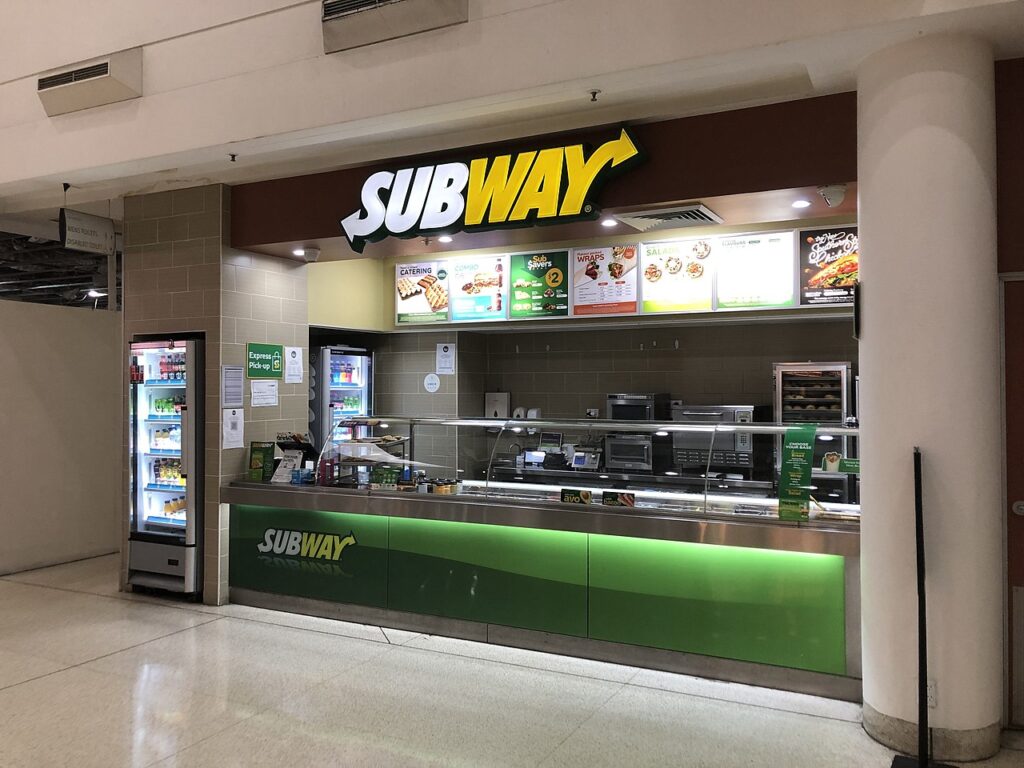Rumors of emergency meetings, declining sales, and mounting Subway closures have been circulating social media and the news paint a portrait of a restaurant in distress.
When Subway went private with a sale to Roark Capital in April, Subway CEO John Chidsey said the company would continue its “strategic focus on delivering better food and a better guest experience, our next chapter will be the most exciting yet.”
However, that strategic focus may be floundering. Obstacles include rising prices, a decline in same-store sales, and a robust streak of closing Subway locations.
High Prices Turning Customers Away
They also mentioned that Subway just wasn’t that great for the price anymore.
Customers lament that the price of a footlong sub can go over $14. Restaurant Business Online agreed, adding the disclaimer that prices can vary based on location.
A $14 sandwich isn’t a very good deal to anyone who remembers the $5 footlong that underpinned Subway’s early 2000s ascent to the world’s largest restaurant franchise by number of locations. Consumers also say that locally owned sandwich shops make better sandwiches.
Subway plans to run a two-week long promotion for a $6.99 footlong starting August 26. Reintroduction of value meals have been a trend among chain restaurants who never fully recovered from the pandemic. To increase foot traffic, Subway is also considering running more buy one, get one promotions.
Moreover, Subway has fell behind in the consumer shift to mobile order and delivery apps, further adding to its ongoing woes.
Related: McDonald’s Tests Limited-Time $5 Meal Deal To Woo Back Cash-Strapped Customers
Subway Closures Pile Up
Subway franchises have historically had a relatively low cost of entry. The initial franchise fee is $15,000 and it estimates the total cost of opening a franchise at $229,050 to $522,300, not including real estate.
However, keeping a Subway location open is a bigger challenge. Over 7,000 locations have closed since 2014, representing a 26% decline since the chain’s peak.
The difference is often visible: A retail space in a high-traffic area just off Havendale Boulevard in Winter Haven, Florida, was once occupied by a Subway location. Domino’s now occupies the space.
Earlier this week, 23 Oregon stores closed without much warning or notice. Employees were left in suspense regarding when — or even if — they will get their final paychecks.
There were signs of difficulty. One location manager says food orders she had placed weren’t arriving in the preceding weeks. Managers report that corporate headquarters did not respond to attempts to resolve the issue. Two franchisees, CapTen Enterprises and Subfecta LLC, owned all of these locations.
Owner Ann Bell blamed it on a bank account hack that drained all her funds, making it difficult to pay overhead costs like supplies and payroll. She said she was working with the state’s Bureau of Labor and Industries to ensure that the employees got their final paychecks, although warned that would take time.
In June, a Texas-based owner of 48 locations, filed for Chapter 11 bankruptcy. The franchise had recently faced a lawsuit brought by the family of an employee who had been fatally shot by her ex-boyfriend. The family alleged that the franchisee failed to transfer her to another location and increase security for her protection. A judge ordered River Sub to pay $2.97 million to the family.
River Sub also reported that the COVID-19 pandemic caused sales to drop by 80% in 2020, though they may have gradually recovered. It says the restructuring may allow it to keep some locations open.
While those closures made headlines, others flew under the radar. A January Reddit post asks why Subway locations in Humboldt County, California, closed.
Subway’s Recent Sale
Roark Capital, which acquired the Subway brand in April for $9.6 billion, has not issued a statement on the current state of affairs.
According to franchise owners, the private equity firm has very few solutions other than running the occasional temporary promotion and further Subway closures.
The acquisition deal is structured as a whole business debt (WBD). Under the terms, Subway’s assets and revenue streams are posted as debt collateral for more favorable interest rates.
WBD’s have gained popularity in the restaurant chain industry against a backdrop of high interest rates and rising operating costs.
With debt obligations dependent on revenue streams and the recent sale being the largest of its kind, the months ahead will serve as a canary in the coal mine int he private equity industry.
Related: Can Flavor Flav Save Red Lobster From Private Equity?


